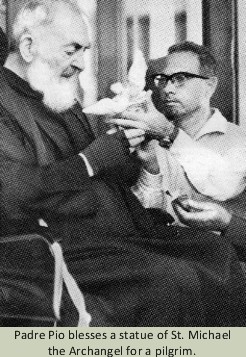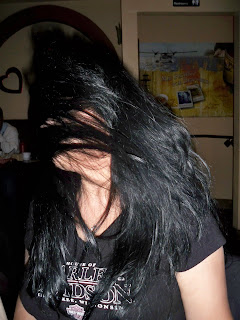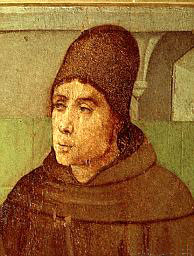Brethren, Peace and Good to all of you. I wish to share with you this essay by the Bishop of Pittsburgh, PA, H.E. David A. Zubik. It brought tears to my eyes when I read it. I applaud this courageous bishop for taking such a strong stance in the face of tyranny.
‘To Hell With You’By Bishop David A. Zubik

It is really hard to believe that it happened. It comes like a slap in the face. The Obama administration has just told the Catholics of the United States, “To Hell with you!” There is no other way to put it.
In early August, the Department for Health and Human Services in the Obama administration released guidelines as part of the implementation of the Patient Protection and Affordable Care Act. The guidelines mandated that by Summer 2012 all individual and group health insurance plans, including self-insured plans, cover all FDA-approved contraception, sterilization procedures and pharmaceuticals that even result in abortion.
A million things are wrong with this: equating pregnancy with disease; mandating that every employer pay for contraception procedures including alleged contraceptives that are actually abortion-inducing drugs; forcing American citizens to chose between violating their consciences or providing health care services; mandating such coverage on every individual woman without allowing her to even choose not to have it; forcing every person to pay for that coverage no matter the dictates of their conscience.
Let’s be blunt. This whole process of mandating these guidelines undermines the democratic process itself. In this instance, the mandate declares pregnancy a disease, forces a culture of contraception and abortion on society, all while completely bypassing the legislative process.
This is government by fiat that attacks the rights of everyone – not only Catholics; not only people of all religion. At no other time in memory or history has there been such a governmental intrusion on freedom not only with regard to religion, but even across-the-board with all citizens. It forces every employer to subsidize an ideology or pay a penalty while searching for alternatives to health care coverage. It undermines the whole concept and hope for health care reform by inextricably linking it to the zealotry of pro-abortion bureaucrats.
For our Church this mandate would apply in virtually every instance where the Catholic Church serves as an employer. The mandate would require the Catholic Church as an employer to violate its fundamental beliefs concerning human life and human dignity by forcing Catholic entities to provide contraceptive, sterilization coverage and even pharmaceuticals that result in abortion.
There was a so-called “religious exemption” to the mandate, but it was so narrowly drawn that, as critics charged, Jesus Christ and his Apostles would not fit the exemption. The so-called exemption would only apply to the vast array of Catholic institutions where the following applied:
•Only Catholics are employed;
•The primary purpose of the institution or service provided is the direct instruction in Catholic belief;
•The only persons served by the institution are those that share Catholic religious tenets. (Try to fit this in with our local Catholic Charities that serve 80,000 every year without discrimination according to faith. It would be impossible!)
Practically speaking under the proposed mandate there would be no “religious exemption” for Catholic hospitals universities, colleges, nursing homes and numerous Catholic social service agencies such as Catholic Charities. It could easily be determined that the “religious exemption” would not apply as well to Catholic high schools, elementary schools and Catholic parishes since many employ non-Catholics and serve both students and, through social outreach, many who do not share Catholic religious beliefs. Such a narrow “religious exemption” is simply unprecedented in federal law.
Last September I asked you to protest those guidelines to Kathleen Sebelius, secretary of the U.S. Department for Health and Human Services, and contact your political leadership in the federal government. I asked that you request that this flawed mandate be withdrawn because of its unprecedented interference in the religious liberty and freedom of conscience of the Catholic community, and our basic democratic process.
You did. And you were joined by Catholics throughout the country (and many others as well) who raised their voices against the mandate, raised their voices against a meaningless religious exemption.
On January 20, 2012, the Obama administration answered you and me. The response was very simple: “To Hell with You.”
Kathleen Sebelius announced that the mandate would not be withdrawn and the religious exemption would not be expanded. Instead, she stated that nonprofit groups – which include the Catholic Church – will get a year “to adapt to this new rule.” She simply dismissed Catholic concerns as standing in the way of allegedly respecting the health concerns and choices of women.
Could Catholics be insulted any more, suggesting that we have no concern for women’s health issues? The Catholic Church and the Catholic people have erected health care facilities that are recognized worldwide for their compassionate care for everyone regardless of their creed, their economic circumstances and, most certainly, their gender. In so many parts of the globe – the United States included – the Church is health care.
Kathleen Sebelius and through her, the Obama administration, have said “To Hell with You” to the Catholic faithful of the United States.
•To Hell with your religious beliefs,
•To Hell with your religious liberty,
•To Hell with your freedom of conscience.
We’ll give you a year, they are saying, and then you have to knuckle under. As Cardinal-designate Timothy Dolan, archbishop of New York and president of the U.S. Conference of Catholic Bishops responded, “in effect, the president is saying that we have a year to figure out how to violate our consciences.”
As I wrote to you last September, with this mandate the democratic process is being ignored while we are being ordered to ignore our religious beliefs. And we are being told not only to violate our beliefs, but to pay directly for that violation; to subsidize the imposition of a contraceptive and abortion culture on every person in the United States.
It is time to go back to work. They have given us a year to adapt to this rule. We can’t! We simply cannot!
Write to the president.
Write to Secretary Sebelius.
Write to our Senators.
Write to those in Congress.
Use the PA Catholic Advocacy Network to send an email message, too.
I have included the addresses in a box accompanying this article. Here’s what you can write:
"Dear (Representative):
“In early August, the Department for Health and Human Services released guidelines that would force Catholic institutions to subsidize through their health care plans contraception, sterilization procedures and pharmaceuticals that even result in abortion.
“It was announced on January 20thby Kathleen Sebelius, secretary of the U.S. Department for Health and Human Services, that this mandate is affirmed and that non-profit institutions, including the Catholic Church, have one year to adapt to the mandate.
“This is a direct threat to the religious liberty of Catholics, freedom of conscience and the social service ministry of the Catholic Church. The so-called ‘religious exemption’ in the mandate is no exemption at all as it would require any Catholic institution (that serves non-Catholics or employs non-Catholics) to violate Catholic belief, discontinue to provide health care, or close its doors.
“I ask that you do all possible to rescind the ‘Preventive Service Mandate’ as an unprecedented federal interference in the right of Catholics to serve their community without violating their fundamental moral beliefs.”
This mandate can be changed by Congressional pressure. The only way that action will happen is if you and I take action.
Let them know that you and I will not allow ourselves to be pushed around (or worse yet) be dismissed because of our Catholic faith.
Let them know that you and I will not allow our religious freedom to be compromised.
Let them know that you and I will not allow our religious liberty to be rescinded.
Nobody, not even the president of the United States or anyone who represents him, has the right to say to you and to me as U.S. citizens, as Catholics, or as both: “To Hell with You.”
The president and our elected leaders need to hear from you and me and to listen to us NOW.
And if NOT now, HOW can we get the president to listen to us???
 The word angel
The word angel 
















